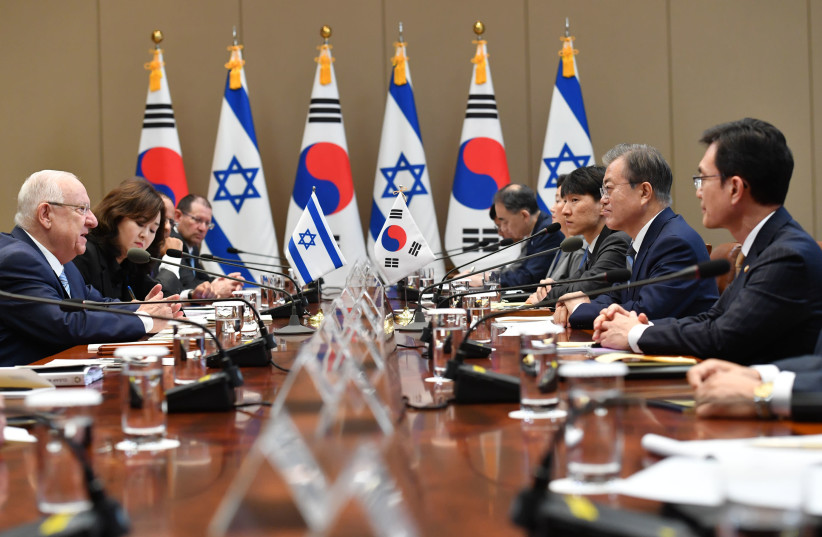Following a two-year stint of cumbersome alternative routes, a direct route from Tel Aviv to the South Korean capital city of Seoul has come back into operation.
The route, which will see around three flights every week, will be operated by Korean Air, South Korea’s largest airline.
Korean Air will operate the route on Mondays, Wednesdays and Fridays, shuttling passengers between Ben-Gurion Airport and Incheon International Airport, about 50 minutes from downtown Seoul. Flights are expected to take a little over 10 hours.
A Korean Air press release outlined the expected price points for tickets throughout the year: from January to February, round-trip tickets will start from $1,075. In March the price will rise to $1,540 or more per ticket, until reaching a peak expected price of $1,920 in April (coinciding with Passover). In August, prices for tickets will start at $1,075 and in the Sukkot season they are expected to start at around $1,540.
Reopening the tourism floodgates

Following a meeting with Korean Ambassador Kim Il-soo in August, Tourism Minister Yoel Razvozov noted that the reopening of such routes will act to reinvigorate Israel’s tourism industry, which suffered a serious blow during the pandemic. “We are continuing to market the State of Israel with the renewal of flight lines – increasing tourism, lowering the prices and connecting Israel to the world,” he said.
On that note, Israel has recently announced 2023 flight routes to Ireland, Australia and Japan, and Delta Airlines is expected to begin offering direct flights to Atlanta again (after having closed the route due to the pandemic) in March 2023. “I think it’ll be a very strong flight because people can get anywhere from Atlanta,” Delta Air Lines’ VP EMEAI Nicolas Ferri said.
Israel and South Korea: Fast friends
Israel and South Korea have recently been taking steps to strengthen their business relationships following the ratification of a free trade agreement, which went into effect this month.
According to Ofer Reinhardt, CEO of Maman Aviation from the Maman Group, Korean Air’s representative in Israel in the passenger sector, there is already much Israeli interest in the flight line, in part due to the budding trade between the nations. “Already today we are witnessing particularly high demand among Israeli companies that specialize in organized trips to the destination. This is alongside great interest from entrepreneurs and businessmen who wish to develop their businesses in light of the free trade agreement between the countries,” he said.
In October, Israeli climate-tech company Airovation Technologies signed a memorandum of understanding with South Korean chemical and textile manufacturing company Kolon Industries to collaborate on a three-phase scale-up process for carbon capture at the latter’s manufacturing facility.
“Our South Korea-based partnerships showcase how the ‘start-up nation’ of Israel can provide the entrepreneurial mindset to drive innovation, while South Korea can bring to the table its expertise in the realm of scaling.”
Gil Tomer
“Our South Korea-based partnerships showcase how the Start-Up Nation of Israel can provide the entrepreneurial mindset to drive innovation, while South Korea can bring to the table its expertise in the realm of scaling,” Airovation co-founder and COO Gil Tomer said. “These complementary assets and experiences will empower such enterprises and partnerships to flourish.”
